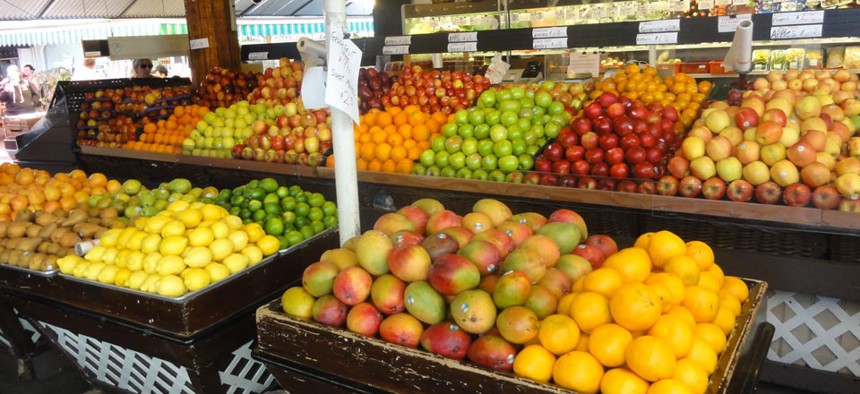A California Law Will Weed Fraudulent Vendors Out of Farmers Markets

Flickr user fhk

Connecting state and local government leaders
It's part of a growing conversation about who's selling what.
Of all the places to bilk consumers, farmers markets are about the most miserly. What vendor would lie about their practices to bright-eyed Saturday morning shoppers, arms filled with ombre summer squash and hearts warmed with a sense of community?
Alas, in California, farmers market fraud is not uncommon. A 2010 undercover investigation by NBC Los Angeles found over two dozen markets in the city with instances of false representation. There were vendors who lied about how their products were grown ("pesticide-free!"), or who said they were growers when, in fact, they'd picked up their produce wholesale.
But a new law passed today in California will help toss farmers markets "cheaters" out of the industry. Ben Feldman, chair of the California Alliance of Farmers' Markets, told the Los Angeles Times that "[t]his is the single most significant change to farmers market laws since they were established in 1977.”
Under the new legislation, farmers markets will pay a higher per-vendor fee to the state, from 60 cents to $2 daily. The estimated $1 million in increased revenue will support the California Department of Food and Agriculture in enforcing consumer-protection laws that fine and suspend violators.
The increased fees won't likely translate into higher prices on kale and beets, since it's market organizers that pay the state, not vendors. But starting January 1, California shoppers will likely see more state inspectors among the stands, as well as signs like "We grow what we sell," that lawmakers hope will help filter out phonies.
Enforcing farmers market laws has always been tough, and not just because of a lack of funding. State inspectors are often dispatched at the county level. In many cases, a vendor selling in one county might have their farm in another. So when an L.A. county inspector reports seedy behavior at a Hollywood farmers market, it could be weeks before the San Bernardino County inspector follows up at the questionable seller's Apple Valley acreage.
Even with more money, it will still be a challenge for the state to coordinate inspections. But coupled with a growing national push for better metrics on how farmers markets serve their communities, the new law will build tote-bagger confidence in the end.
(Image via Flickr user fhk)
NEXT STORY: A Conversation With Detroit Mayor Mike Duggan




